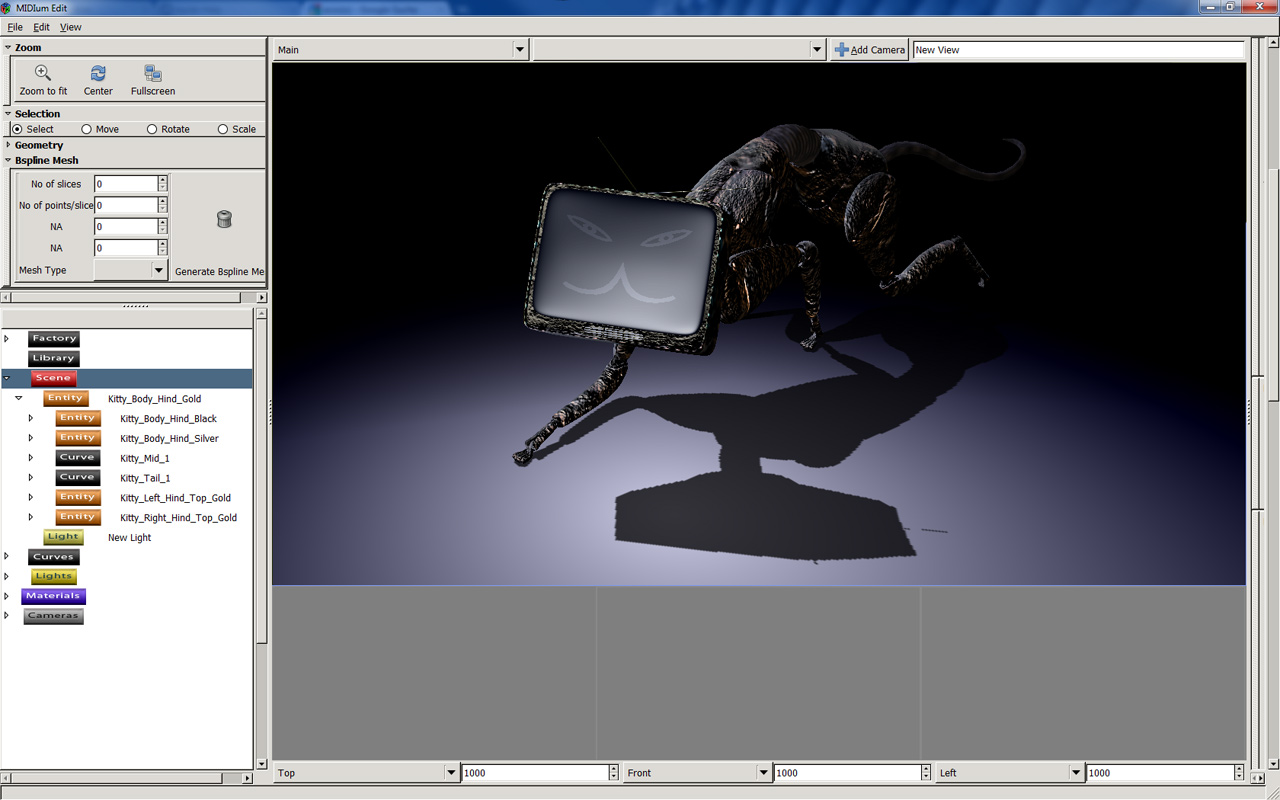MIDIum
The longing for a better medium bridging the gap between music and visual art was what led to the inspiration of MIDIum.
Actually the launch video for the newest prototype version of telePort, but it shows quite a lot from the new internal version of MIDIum.
The first video demo
3D Interface Sketch – Actual Interface not yet revealed. (Video temporarily unavailable)
Simply put, MIDIum enables you to play and perform animation as well as music instead of working with slow render times and tedious synchronization between the two worlds. It lets you control all the parameters off a specialized interactive 3D engine using a variety of input data, like MIDI, OSC and real-time Audio.
NEW MIDIum is being written from scratch, making it a lot more efficient/stream-lined than the first prototype and adding more advanced capabilities like post-processing and tessellation. An advanced deferred renderer using OpenGL 4.4.
This system – and it’s so far secret interface – will also serve as the framework for telePort 1.0. Adding VST/AU Plug-in support and a host of sequencing/mixing features.
Sharing the same framework they will be able to communicate with each other in a more direct way than using MIDI/Audio/OSC and using the 3D position of the visual components to control the spacial position of sounds in a Surround Sound configuration is within this scope.
Although MIDIum is based on an internal advanced scripting system built with the
philosophy of giving total control over all events, MIDIum will also
come with a unified Event system making it managable for non-scripters
to set up their own Audio-Visual instruments.

Interface from the first version (OpenME).
The core foundation for MIDIum WAS OpenME, Open Media Engine, which provides cross-platform high-level abstraction for all hardware access such as 3D graphics, Physics and GP-GPU processing, Audio and Video playback and processing, MIDI I/O, 2D GUI functionality, MultiCore CPU threading, timing and event management, and data resource, loading/saving, import/export, file management.
OpenME is written in C++ using templates/boost and various (preferable) open standards and open source framework libraries, such as OpenGL 4.1 + GLSL, OpenAL, ODE (and PhysX), ReWire, Jack, SDL, libFFMPEG, CEGUI, wxWidgets, libxml and others.
There is an open source release of OpenME available at openme.gl, under a GPL license, but beware it is largely undocumented and very very messy.
Supporting both Windows, MAC and Linux and iOS.
